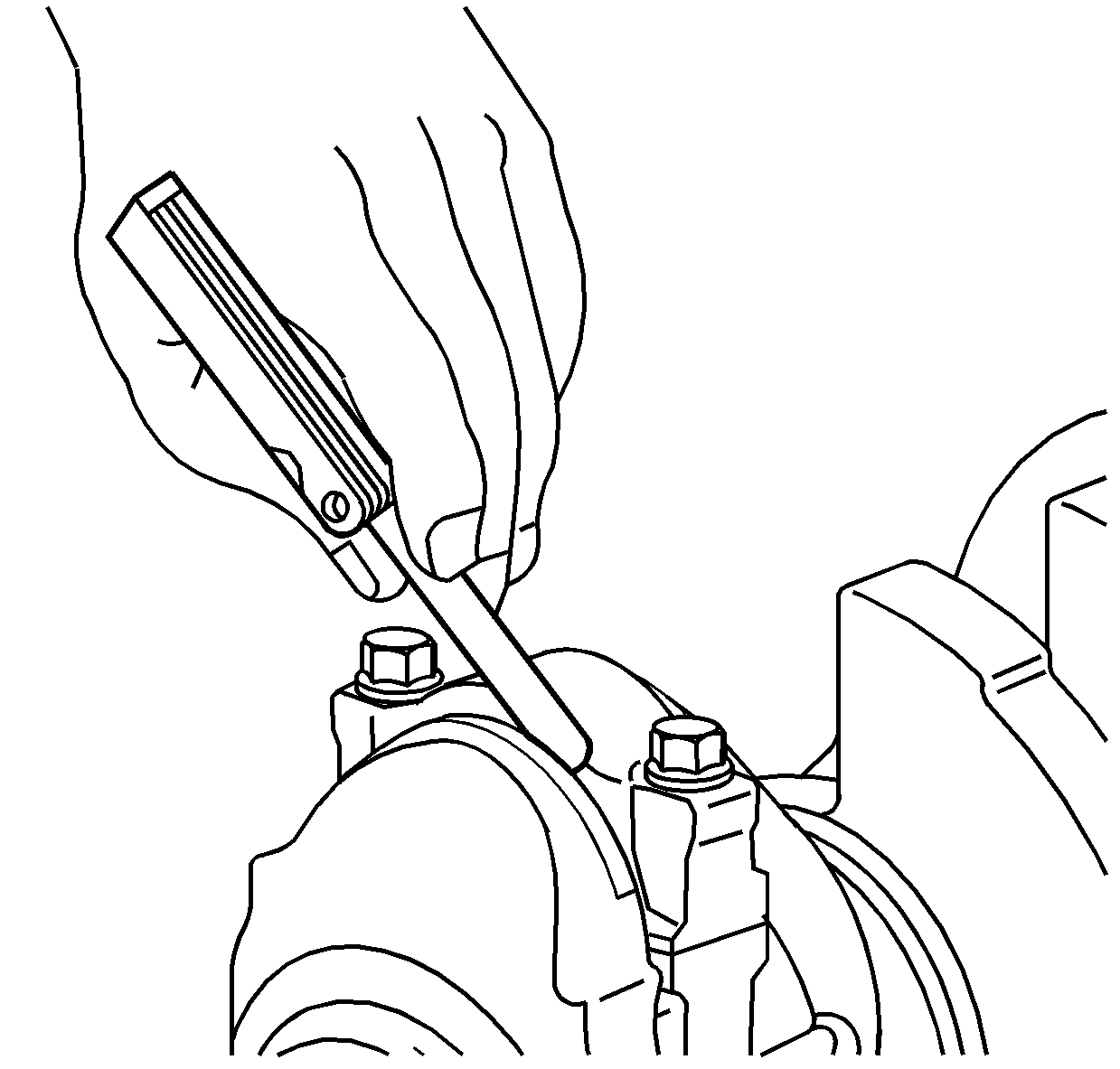For 1990-2009 cars only
Tools Required
| • | EN-47701 Piston Ring Compressor |
| • | J 45059 Angle Meter |
| • | J 41556 Connecting Rod Guide |
- Rotate the crankshaft so the connecting rod journal for the piston being installed is at bottom dead center.
- Lubricate the cylinder wall with engine oil.
- Lubricate the piston and rings with engine oil.
- Stagger the ring end gaps 90 degrees apart.
- Install EN-47701 onto the piston and ring assembly to compress the rings.
- Install the connecting rod bearings into the connecting rods and caps (1).
- Lubricate the connecting rod bearing contact surfaces with engine oil.
- Install the J 41556 into the connecting rod.
- Install the connecting rod and piston into the proper cylinder bore.
- Make sure to install the connecting rod facing the right direction.
- Hold the EN-47701 firmly against the engine block. Using a wooden hammer handle, lightly tap the top of the piston until all of the piston rings enter the cylinder bore.
- Guide the connecting rod end onto the crankshaft journal.
- Install the connecting rod bearing, cap, and bolts.
- Tighten the connecting rod bearing cap bolts on the first pass to 25 N·m (18 lb ft).
- Use J 45059 to tighten the connecting rod bearing cap bolts on the second pass an additional 110 degrees.
- With the pistons and connecting rods installed, use a soft faced mallet and lightly tap each connecting rod assembly parallel to the crankshaft.
- Measure the connecting rod side clearance using a feeler gauge. Connecting rod side clearance should be between 0.05-0.35 mm (0.0019-0.0137 in).
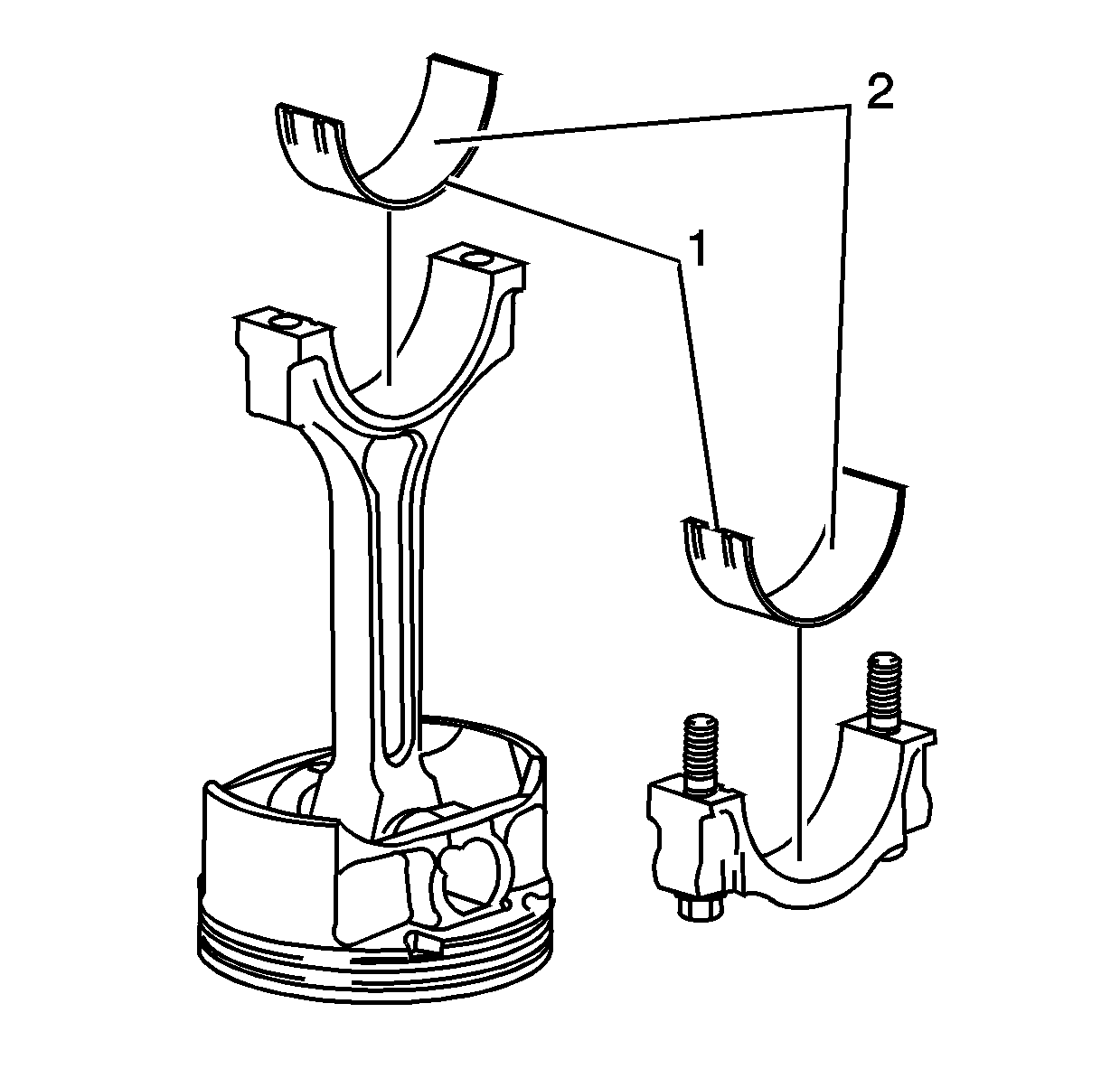
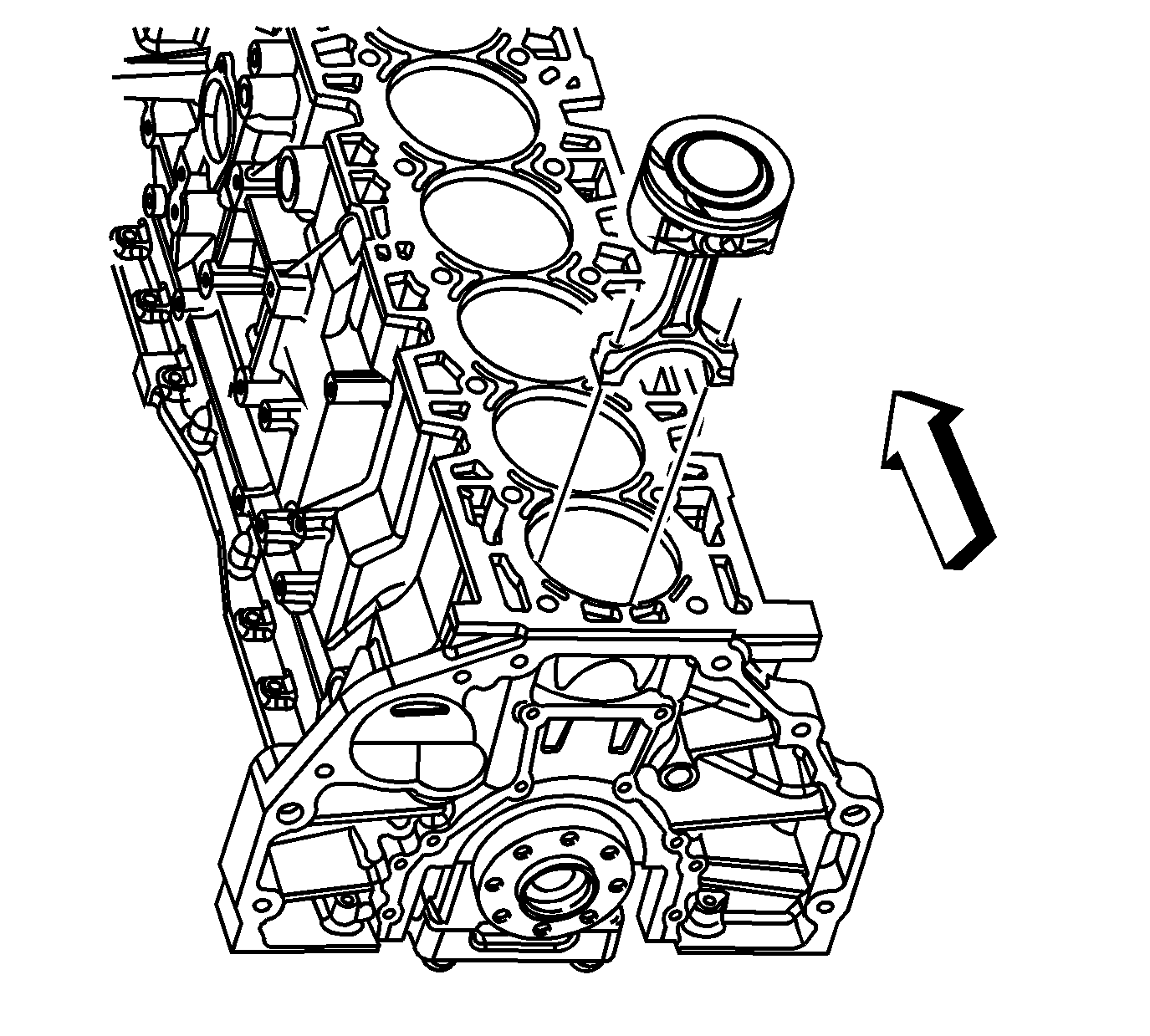
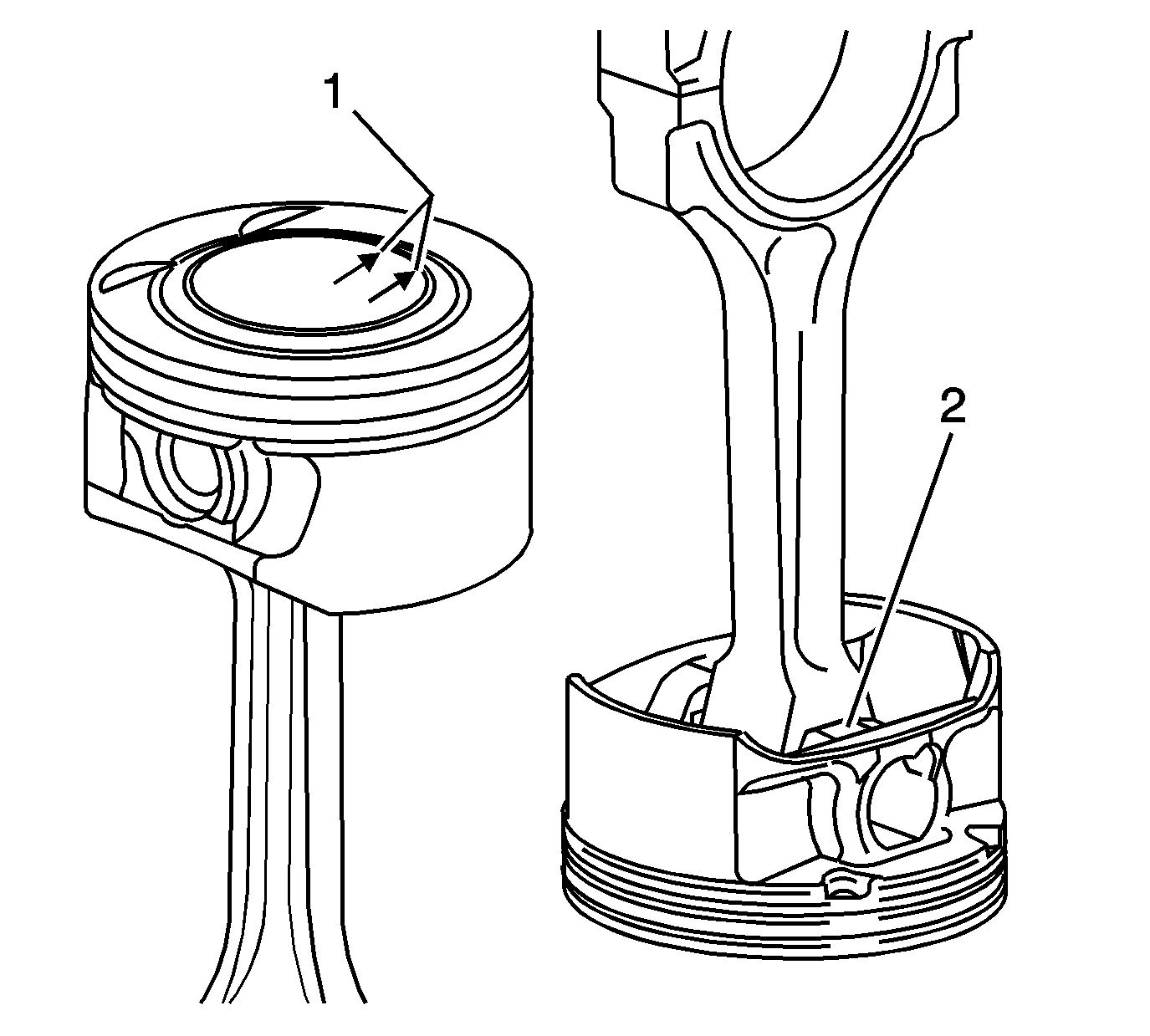
Important: The piston and cylinder bore have been measured and the bore has been sized for the proper clearance. Install the piston and connecting rod assembly into the proper cylinder bore. The piston alignment mark MUST face the front of the engine block (1) or the flat casting boss (2).
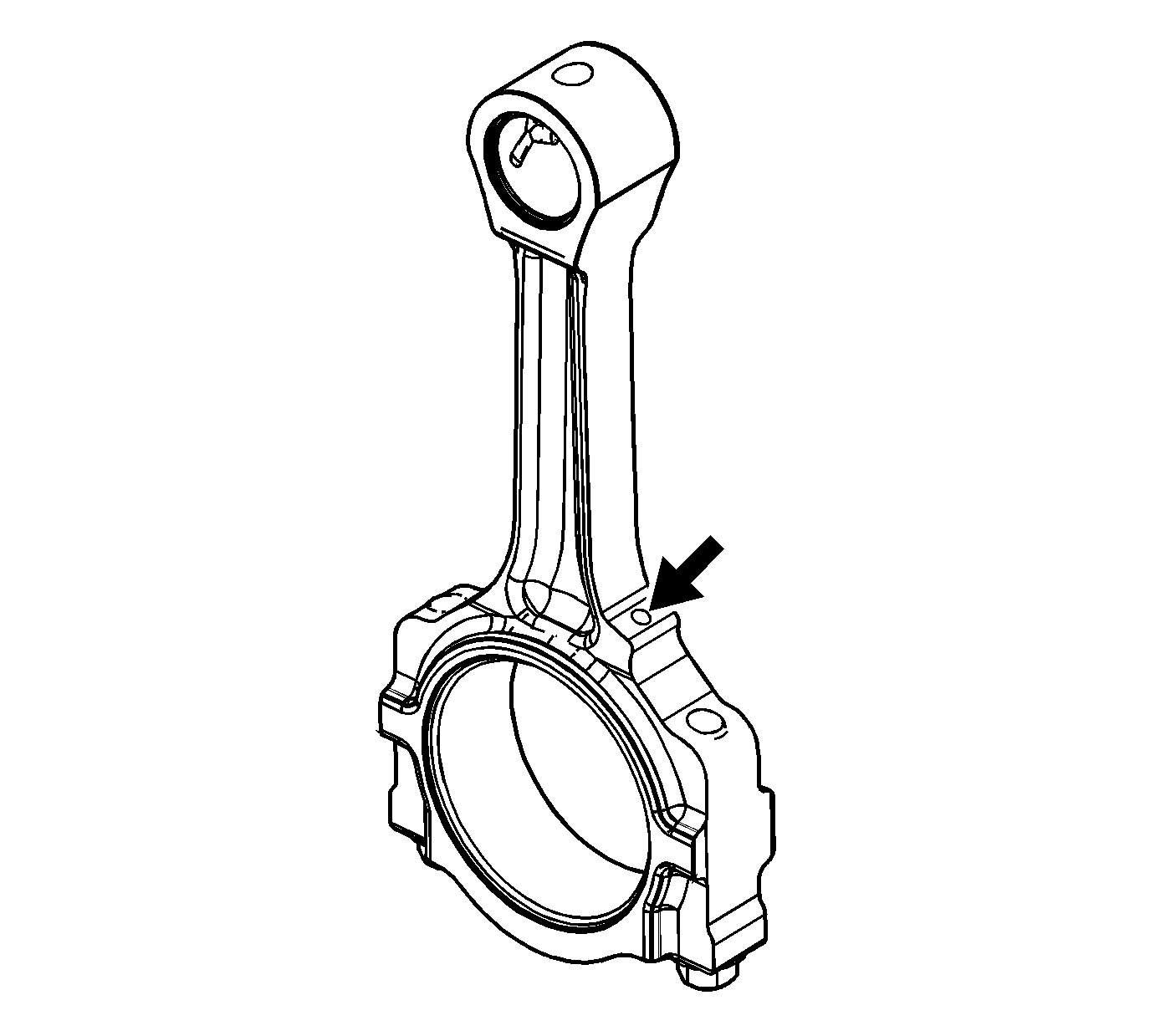
Important: The oil hole, in the connecting rod, should be facing the exhaust side of the block.
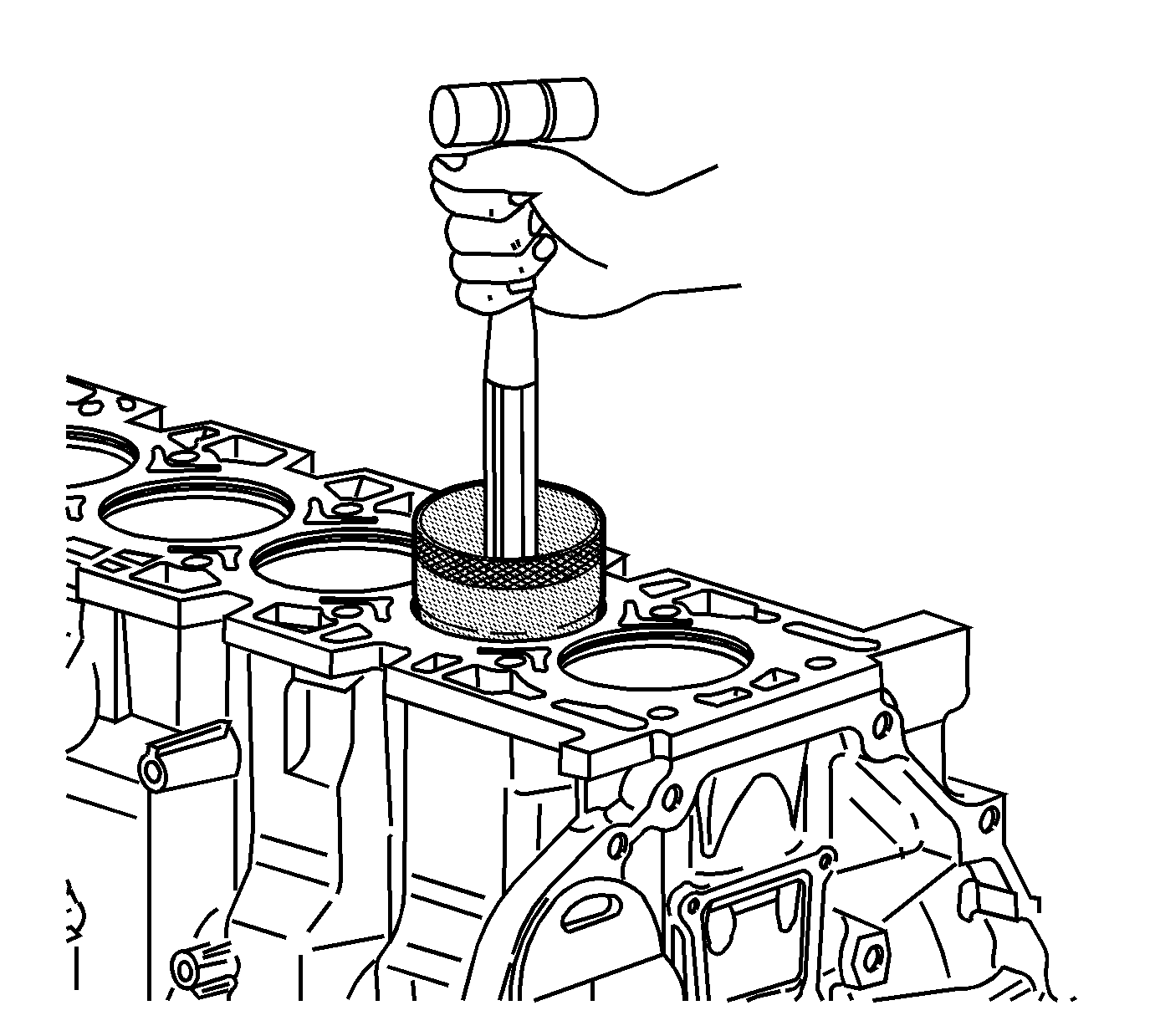
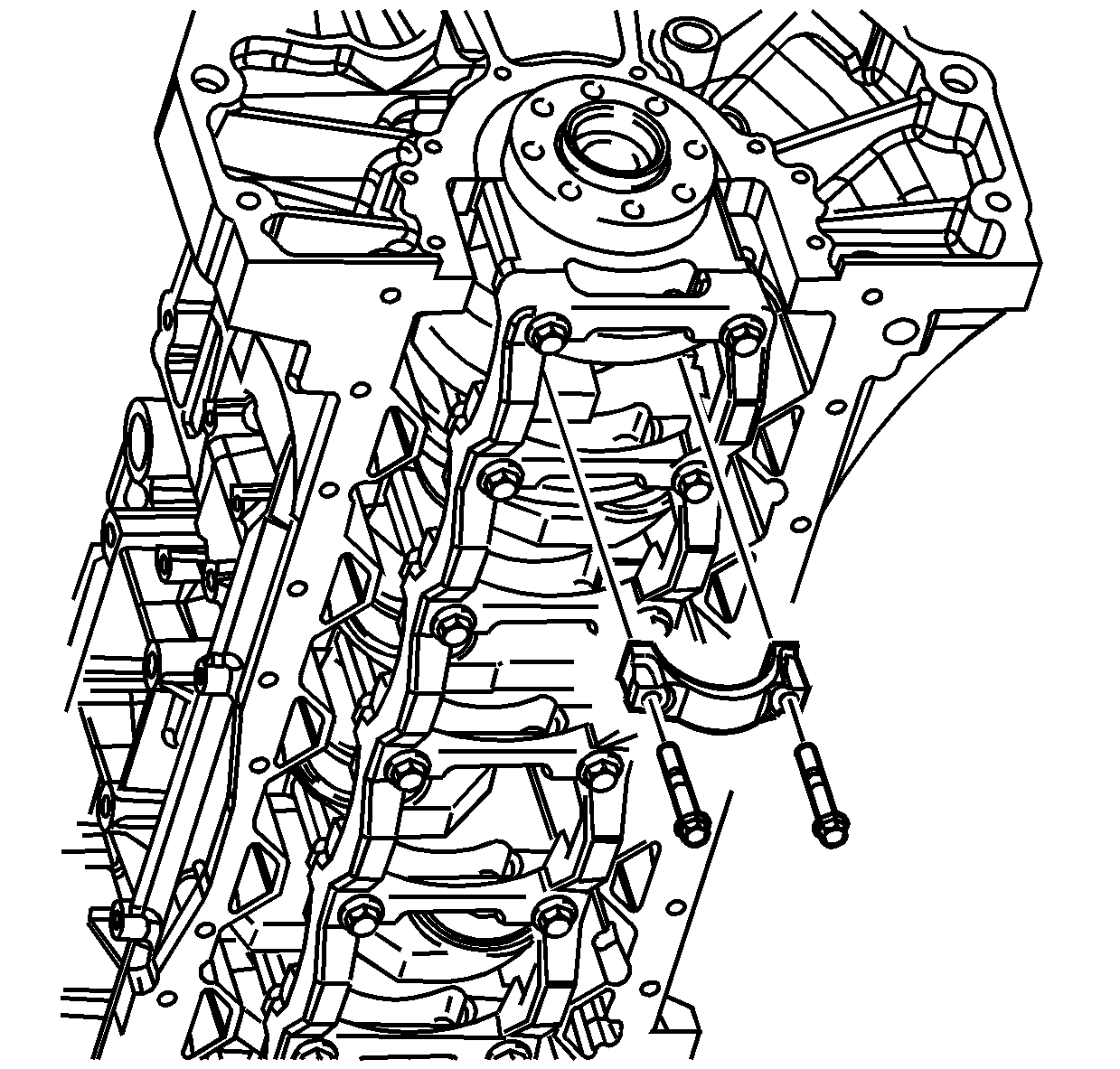
Use J 41556 to pull the connecting rod into place.
Notice: Refer to Fastener Notice in the Preface section.
Tighten
